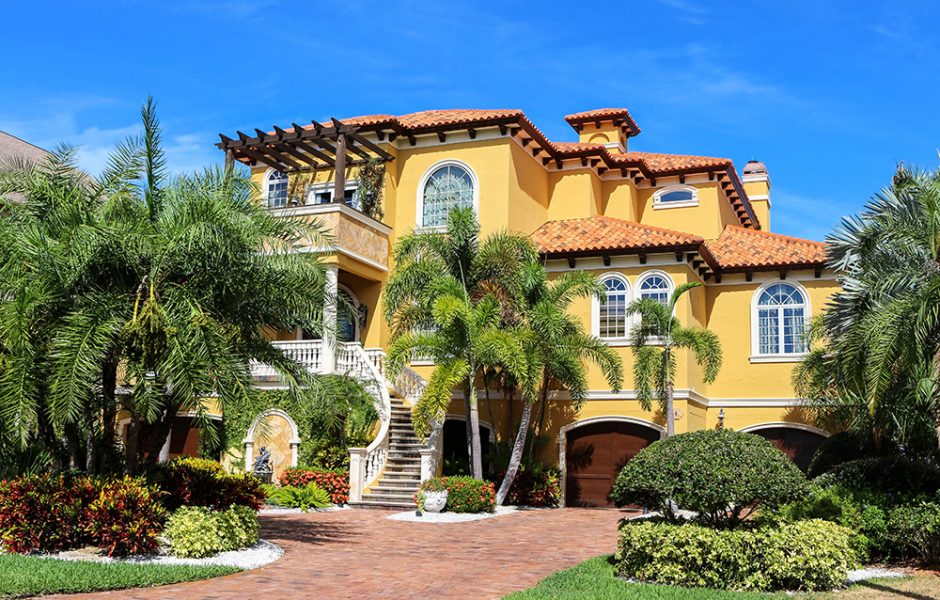For many non-U.S. citizens, the purchase of a luxury home (or more than one) in certain places in the United States has become an important part of their overall investment portfolio, a strategic part of what we call “Protecting the Inheritance”. Here are our Bullets:
Good Luck Bullets
- Available airline travel makes frequent use and even cross-border commuting a feasible option.
- Luxury properties, purchased correctly, often provide opportunities for significant appreciation.
- If the luxury home becomes your primary residence for two years, substantial tax savings upon the profits from sale are available, even for non-U.S. citizens. We recommend that a qualified tax professional become a part of the purchase team.
- Purchase money loans are available for qualified individuals, our banking industry colleagues say. If needed, they can also be a part of the purchase team.
- Texas is third in the nation for number of vacation homes[1], and cities like Houston, San Antonio, Dallas/Ft. Worth and Brownsville/South Padre Island have wide-ranging activities for family members of all ages.
Warning Shots
- The individual or entity (you personally, your company or a new Texas entity) is a legal matter you should carefully address as part of your plan of action. Non-attorney realtors cannot help you with this—we can.
- Incorporate a flexible exit strategy (time period for holding a luxury home) into the plan of action.
Air-travel Availability Always Advised
 No matter the country of origin, vacation home buyers typically purchase a more expensive, larger property farther away from home (compared to investment buyers).[2] One in five travel more than 1,000 miles to their vacation home. Non-US buyers tend to favor suburban/urban resort areas that can be reached by direct flights from international hub cities.[3]
No matter the country of origin, vacation home buyers typically purchase a more expensive, larger property farther away from home (compared to investment buyers).[2] One in five travel more than 1,000 miles to their vacation home. Non-US buyers tend to favor suburban/urban resort areas that can be reached by direct flights from international hub cities.[3]
A whopping 87% of vacation home buyers plan to use their property for vacations OR as a family retreat. Another 31% plan to convert their vacation home into their primary residence in the future.[4] Thus, available air-travel and air taxi travel is a must for convenient commuting from suburban Texas areas via Houston Intercontinental Airport (IAH) to the home country.
According to the Bureau of Transportation Statistics, eight of the top 15 busiest international routes to and from IAH were between Houston and destinations in Mexico and other Central- and South American countries. Three of the top 11 were Mexico City (#1), Monterrey (#7) and Guadalajara (#11), accounting for over 1.3 million passengers in 2015.
The Houston Airport System reports that for 2016, the total number of international passengers (many obviously repeat travelers) exceeded 11.5 million. Based upon FAA Tower Counts, 158,672 air taxi operations originated from IAH in the same year.
Here’s a contact for wholesale international air travel: Brandon Kreitner, +1 888-832-2270, brandon@businessclassguru.com.
Plan Prudently, Precious Posterity
Generally speaking, there are no legal restrictions on purchases by non-US owners. You can buy what is referred to as “fee simple” title, and own it for the duration of your lifetime. Afterwards, you can pass it on by inheritance. One of our jobs is to make sure you are getting the title you pay for, something non-attorney realtors are unable to do.
At this time, residences don’t require any licensing or registration.[5] However, a non-US buyer who doesn’t already have one must apply for an Individual Taxpayer Identification Number (ITIN) with Form W-7. But there is no state or federal government interference with your lawful possession, use, sale or inheritance.
Such a purchase can be part of an overall portfolio strategy. An upper-tier buyer of a second, luxury home receives personal enjoyment plus a means to create, preserve and enhance wealth.
Tax Tips, Too Terrific
So far as we know, no other country in the world allows the tax benefits that are available to sellers of US realty. The rules can get complicated quickly, so the planning team should include a tax professional.
Example: For qualified investment properties, US tax law allows you to use the sales proceeds and, with the assistance of a qualified intermediary, timely purchase another like-kind property of equal or greater value without paying tax upon the gain from the property just sold.
Example: If your property is not an investment property, but is your primary residence for any 2 years out of 5 years, you can sell that residence and have non-taxable gain up to $250,000 ($500,000 for you and your spouse). The gain does not have to be re-invested in a new property.
Example: FIRPTA Withholding requirements are unchanged under the new law for properties whose sale price is between $300,000 and $1 million; for properties over $1 million, the withholding requirement is now 15%.
Money, Money, Money: The Real Estate Market During a Downturn
 When the “dollar dump” begins, we believe the US property market as a whole will become a seller’s market. As with any property “bubble”, repatriated dollars will flood into the market; good deals will become scarce. However, inflation is the property owner’s friend, if you buy at the right time.
When the “dollar dump” begins, we believe the US property market as a whole will become a seller’s market. As with any property “bubble”, repatriated dollars will flood into the market; good deals will become scarce. However, inflation is the property owner’s friend, if you buy at the right time.
When it comes to establishing bank accounts, there are currently no U.S. restrictions on lawfully obtained amounts that can be transferred to the U.S. It usually takes fewer than 30 days for the bank to perform due diligence in establishing your bank account. Our banking colleagues tell us that short-term “bridge” loans are available, as well as longer-term loans, when the property is given as collateral.
For an experienced banking professional, contact Ricardo Guajardo at BBVA Compass Bank, Global Wealth Division, +1 713-831-5535.
Crafting a Luxury Home Exit Strategy
Good real estate lawyers (including us) recommend including an exit strategy when planning a luxury home purchase. Give thought to how and when you will exit your investment. For example, you might purchase a resort property or second home as an investment initially, then use it as a primary residence when you retire.
Here are examples of options to consider:
- Exit at X years, by sale or tax-free swap
- After X years, if you decide to hold or the market isn’t right, reset the clock
- Keep the property for residence for “working retirement” or full retirement
- Place property into trust/gift for children
The median length of time buyers plan to own property is five years for an investment home and six years for a vacation home, according to a survey by the National Association of Realtors. For the tax reasons listed above, the exit strategy is most important for maximizing your profit.
International Luxury Living—Simplified.
1. National Association of Realtors® (“NAR”) Investment and Vacation Home Buyers Survey 2014, pg. 33
2. National Association of Realtors® (“NAR”) Investment and Vacation Home Buyers Survey 2014, pg. 31
3. Id., pg. 32
4. Id., pg. 32
5. Agricultural land purchases must be registered with the US Department of Agriculture.




No Comments